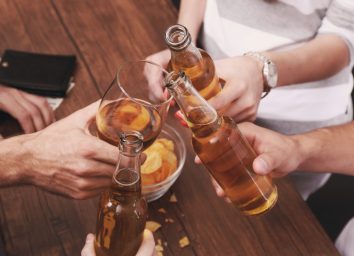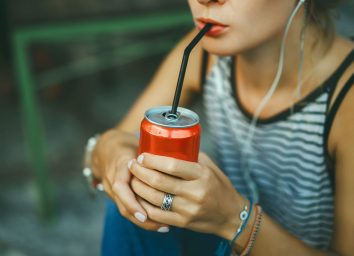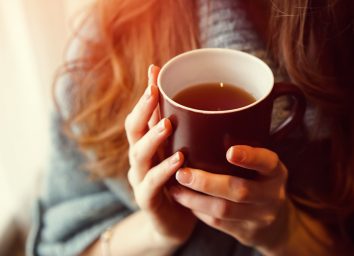The #1 Worst Drink to Have Over 40, Says Dietitian
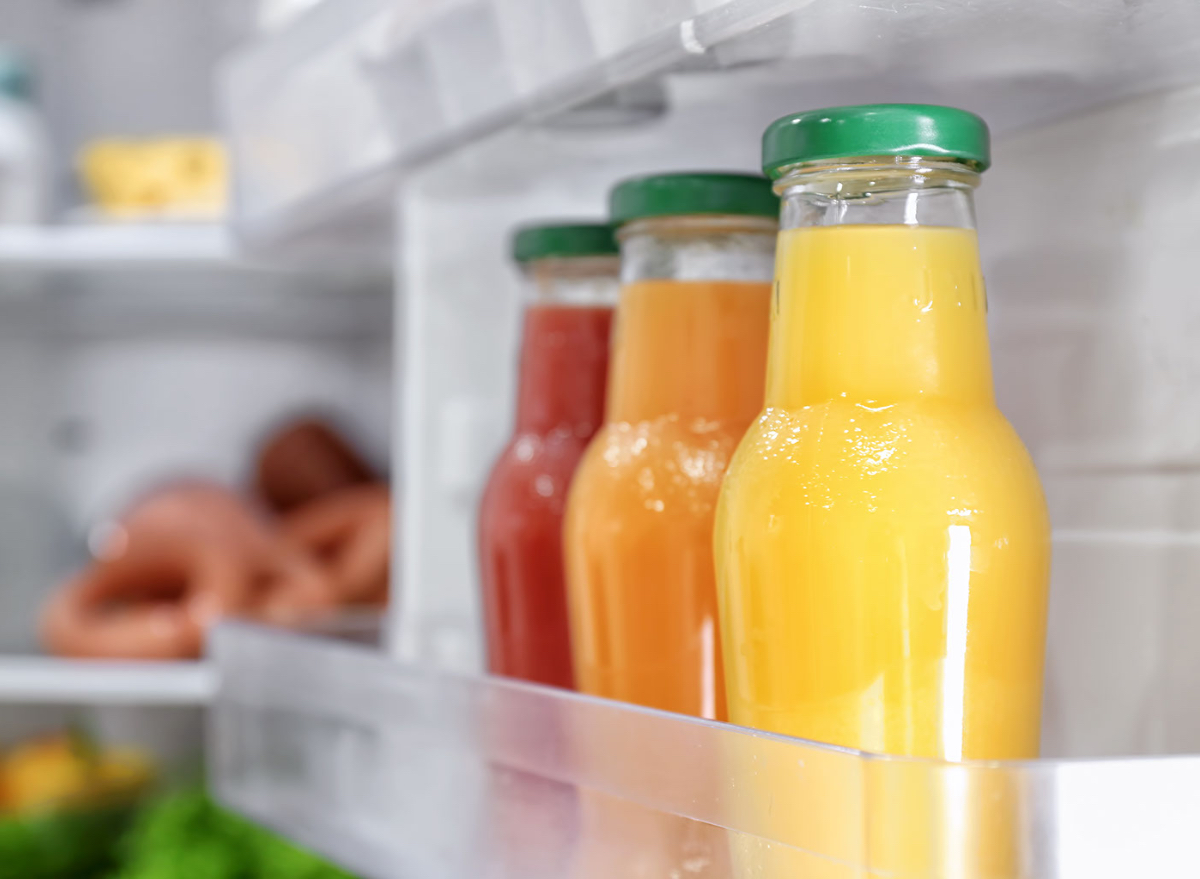
It’s not hard to point out some really bad-for-you beverages. Let’s see, how about that third cocktail at happy hour before getting behind the wheel? Obvious. Or, say, a can of Mountain Dew Flamin’ Hot, which packs 220 calories and 58 grams of added sugars in 16 ounces. A no-brainer.
There are dozens of liquids that’ll make your drinks-to-avoid list if you are over 40 and concerned about your weight, aging skin, sleep habits, and risk for disease. The worst beverage, however, may be the one that lures you into thinking it’s a better, more healthful choice: fruit drinks. After all, juice is squeezed from nature’s bounty, right? That’s true, but we’re talking about fruit drinks, not juice.
But first, what exactly is a “fruit drink?”
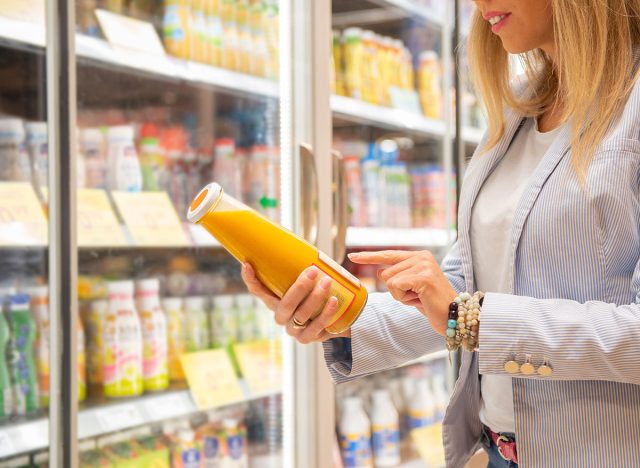
What we’re calling fruit drinks, you may think of as “juice,” but that’s not quite the case. There’s 100% natural juice with no added sugars (which still contain high amounts of blood-sugar-raising sugar), and then there are fruit drinks, which are loaded with added sugars like natural sugar and high fructose corn syrup. Some fruit drinks can have as much or more added sugars than even soda!
And unlike with soda, which most of us know isn’t that great for you, with fruit juices, we’ve been conditioned into thinking that they are part of a healthy breakfast or a better option than soda—but that can’t be farther from the truth.
Consider Sobe Elixir Strawberry Daiquiri Tsunami, whose first four ingredients are filtered water, sugar, condensed skim milk, and cream. A 20-ounce bottle (which is a typical serving) contains no juice despite “strawberry” in the name, 250 calories, and 62 grams of added sugars. That’s more than double the 25-gram limit of added sugars that women should consume in one day, according to the American Heart Association. The max for men is 36 grams of added sugars.
Why fruit drinks with added sugars are bad for you.
“Science shows us that drinking sugar-sweetened beverages (SSBs) increase your risk for weight gain, type 2 diabetes, cardiovascular disease, and some cancers” warns registered dietitian nutritionist Laura Krauza, MS, RDN, LDN, founder of Waistline Dietitian.
Related: Tips to help you manage your blood sugar.
Quickly absorbed into your bloodstream, the sugar from these beverages spikes your blood sugar and quickly drops, often causing cravings for more carbohydrates, which may lead you back for more SSBs or for snacks high in simple sugars like baked goods and chips.
SSBs include sodas, milkshakes, 10% fruit juices, sweet, iced tea, lemonade, fruit cocktails, energy drinks, and flavored milks. Some of these beverages may sound more natural and healthier than soda but are far worse in added sugar content.
The replacements
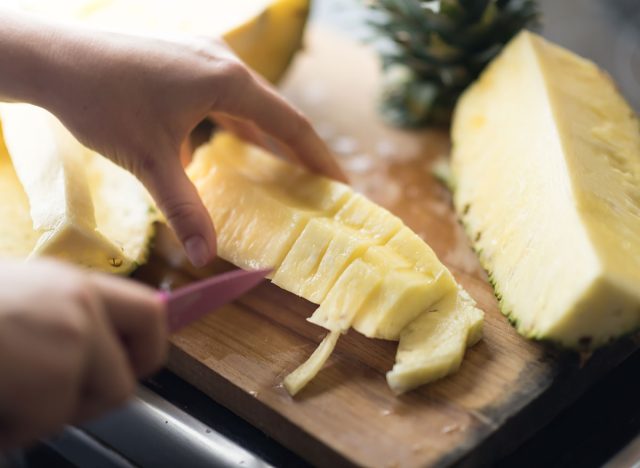
The key to limiting consumption of sugar-sweetened beverages is “being prepared ahead of time with suitable substitutes,” says Krauza.
“If you’re drinking fruit drinks, replace them with water or unsweetened green tea and then eat a whole piece of fruit. Fresh fruit gives you the sweet taste while providing your body with fiber and more nutrients and will be more satisfying.” You’ll also get fewer calories and less of a spike in blood sugar from a portion of fresh fruit instead of a glass of juice thanks to the fiber.
You can also try water with a slice of fresh fruit like oranges, lemons, limes, or cucumber.
And to stay on track with healthful drinking, review this list of the 50 Unhealthiest Drinks on the Planet.
Read these next:
